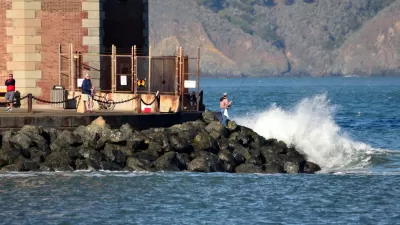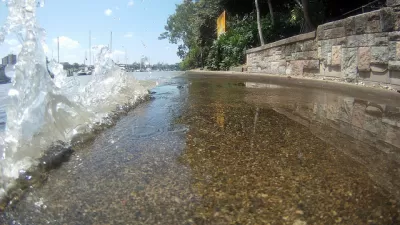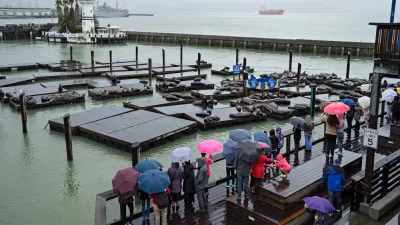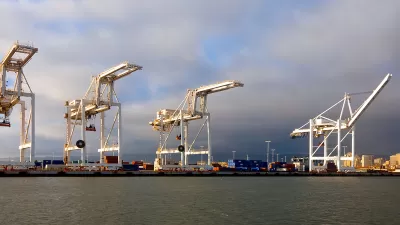The progressive city hopes to integrate economic, community, and climate resiliency measures in future projects.

The Planning Report looks at major resilience initiatives in San Francisco through an interview with City Administrator Naomi Kelly, beginning with upgrades to the century-old seawall that protects some of the city's most iconic—and most lucrative—destinations.
San Francisco was the first U.S. city to appoint a chief resilience officer through the 100 Resilient Cities program, and in that spirit, Kelly's approach incorporates the experiences of other places. For example, following the earthquake in Mexico City, where a school collapse killed more than 20 people, San Francisco has turned its attention to school buildings—specifically private schools, which were exempt from previous retrofit ordinances. And from Hurricane Katrina, Kelly says, SF learned about "the resilience of neighborhood networks."
"We realized that, after a major disaster, all of our public and private utilities need to be talking to one another. We set up a Lifeline Council, which meets regularly, made up of all the city agencies and private utilities—all the energy, gas, and telecom companies—so that we all know exactly who to call within those agencies when an emergency hits."
Other recent initiatives out of Kelly's office include the new Office of Cannabis, whose top priorities are equity—repairing damage done to communities of color by the War on Drugs—and sustainability. "We're working to develop sustainable solutions for an industry that is high-energy and water-intensive," Kelly explains. "For example, we want to mandate operators to provide the city with water management plans, descriptions of sustainability methods, and energy-efficiency reporting."
FULL STORY: SF City Administrator Naomi Kelly's Vision of a Resilient San Francisco

Maui's Vacation Rental Debate Turns Ugly
Verbal attacks, misinformation campaigns and fistfights plague a high-stakes debate to convert thousands of vacation rentals into long-term housing.

Planetizen Federal Action Tracker
A weekly monitor of how Trump’s orders and actions are impacting planners and planning in America.

San Francisco Suspends Traffic Calming Amidst Record Deaths
Citing “a challenging fiscal landscape,” the city will cease the program on the heels of 42 traffic deaths, including 24 pedestrians.

Defunct Pittsburgh Power Plant to Become Residential Tower
A decommissioned steam heat plant will be redeveloped into almost 100 affordable housing units.

Trump Prompts Restructuring of Transportation Research Board in “Unprecedented Overreach”
The TRB has eliminated more than half of its committees including those focused on climate, equity, and cities.

Amtrak Rolls Out New Orleans to Alabama “Mardi Gras” Train
The new service will operate morning and evening departures between Mobile and New Orleans.
Urban Design for Planners 1: Software Tools
This six-course series explores essential urban design concepts using open source software and equips planners with the tools they need to participate fully in the urban design process.
Planning for Universal Design
Learn the tools for implementing Universal Design in planning regulations.
Heyer Gruel & Associates PA
JM Goldson LLC
Custer County Colorado
City of Camden Redevelopment Agency
City of Astoria
Transportation Research & Education Center (TREC) at Portland State University
Jefferson Parish Government
Camden Redevelopment Agency
City of Claremont





























